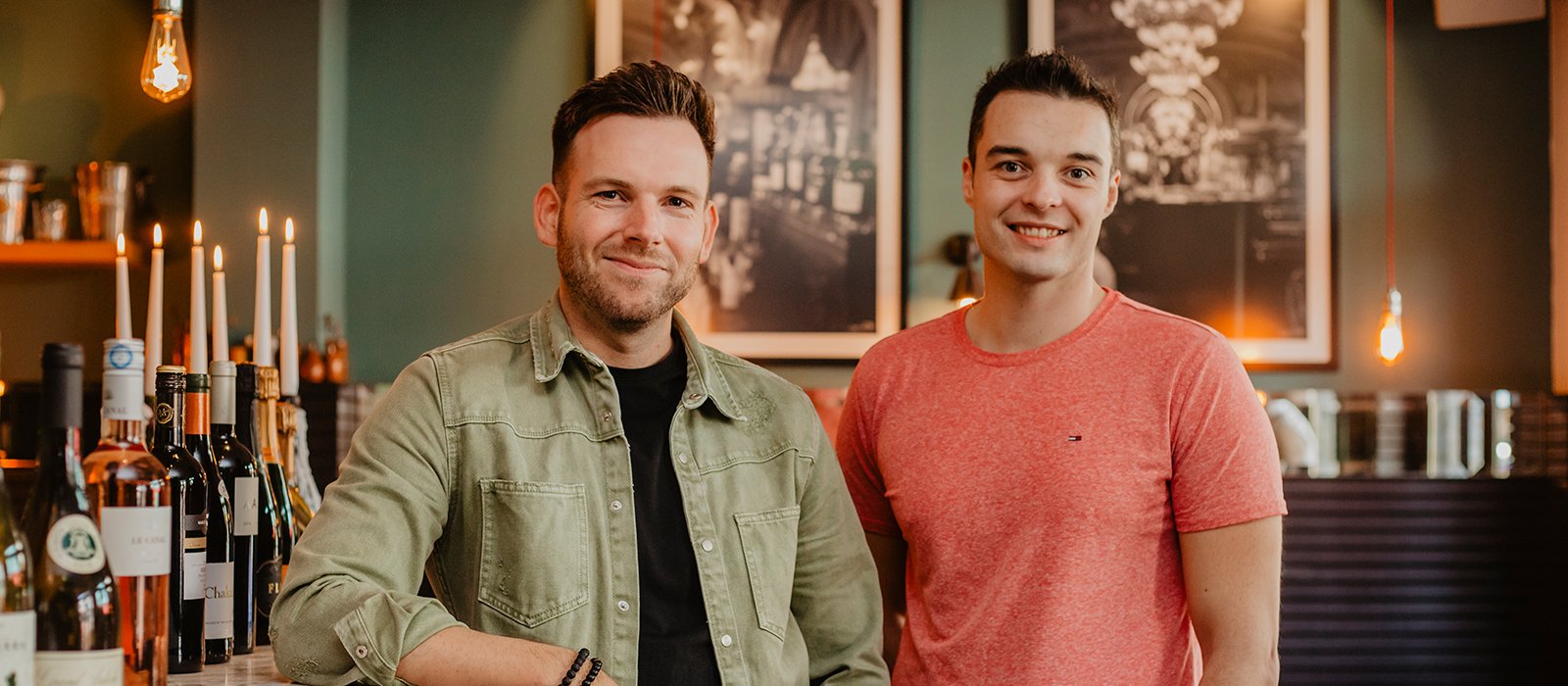Eindhoven-based Bistroo is on a mission to offer a sustainable alternative to the predatory food delivery marketplace.
They’re seeking to do this through a collective shift away from the giants, namely Just Eat Takeaway.com, formerly Thuisbezorgd.nl, and/or Uber Eats in the Netherlands, over to a more restaurant owner and consumer-friendly platform.
The young company has just raised $10 million in funding to make good on its promise.
While the massive shift towards delivery and takeaway has been convenient for consumers, you might have noticed fewer and fewer restaurant choices on offer. Part of this has to do with the middleman who can take up to 60% of an order value. Granted, this 60% includes all the bells and whistles, which, let’s be honest, if not opted for, buries a restaurant way down in the pile of obscurity. And in a crowded marketplace, that pile of obscurity often results in a kitchen closing.
Flipping the Coin
Bistroo founder Bas Roos is also the founder of Entropy, a business service that offers to, “guide organizations through their distributed ledger and blockchain exploration.” If you’re picking up on the community-owned/driven angle via a tokenisation system, you’re on the right track.
"Being able to analyze and consult on digital environments over at a multitude of companies in different markets helped me get a good understanding of how to (digitally) organize on a new level," says Roos.
Issuing their own currency (BIST), Bistroo is facilitating, rather than dictating a food delivery marketplace with all the features today’s restaurants have come to expect, but without the high fees.
Through the tokenisation of the platform both restaurants and consumers benefit.
From the consumer side, BIST tokens can be used to purchase food at a reduced rate compared to FIAT (government-regulated “money”) purchases. Users of the platform can earn BIST through leaving reviews for meal and services, onboarding a favourite restaurant, referring friends to the platform, earning 1% of a FIAT purchase back, or 2% of a BIST purchase back, and now for the big one that the giants would rather you NOT have in control of, whether YOU chose to share your consumption and order data.
On the merchant side, staking in BIST tokens provides discounts on Bistroo’s already low 5% commission fee cap, BIST token allows them to purchase a wide variety of store attributes, access premium dashboard features at a reduced price, and purchase advertising slots that target their specific customer audience.
Bistroo goes live with their token sale on May 16 at 14:00 CET. They also have a telegram group set up with team members answering questions left, right, and centre. While a bit outdated now, OceanProtocol founder Trent McConaghy describes in great detail the benefits of this business model in his article, “Tokenize the Enterprise…And Melt It Into the Community. Rinse, Repeat.”
Now if you’re thinking that this might be all great in theory, in the immortal words of Mr. Jobs, “Oh, and there’s one more thing …”
In partnership with Koninklijke Horeca Nederland
Koninklijke Horeca Nederland, or KHN for short, is “a democratic trade association with over 241 local branches throughout the Netherlands. KHN represents more than 19,000 catering companies that are affiliated with one of the local KHN departments.” To put this in other terms, a big deal. And it’s exactly this big deal that is bound to strike some fear into the giants' hearts and minds.
“KHN is an official partner of Bistroo.nl in opposition to large established platforms, where restaurants pay high commissions per order, have no control over the process or the customer relationship and are not immediately paid on an order.”
If I’m reading that between the lines correctly, this is more or less a call to arms against high prices and zero control over user data.
"We are obviously very happy with the support for our model from an official association like KHN. It provides the validation we need at this stage," comments Bas.
Looking beyond the borders
While Bistroo has already attracted over 20,000 users in The Netherlands and operates in Eindhoven, Utrecht, Tilburg, Amsterdam, Breda, and Rotterdam, the company reports a planned expansion into Belgium in Q3 of this year.
“Later on other countries will follow through a process that is fully automated through our Self Service Portal.”
Groningen, Netherlands-based consultant Nick Stevens contributed to this article.




Would you like to write the first comment?
Login to post comments